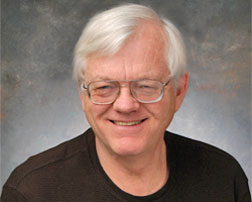- The World Trade Center cleanup disaster
The aftermath of 9/11 was the worst occupational disaster in America since the use of asbestos.
Published 10/15/06 in Risk & Insurance Magazine
Many of the 40,000 World Trade Center ground zero rescue and cleanup workers are at risk of serious health problems and disability from what they inhaled on-site. Why? Because this is a case of how America responds to local disasters: writing a playbook and ignoring it with maddening inconsistency.
This style may be beneficial to some, but it is fatal to others.
Much of my summer reading was about Chicago in 1871, San Francisco in 1906, New York in 2001 and New Orleans in 2005, and it is remarkable how local economies, after being clobbered, recover and grow beyond their predisaster levels.
This renewal can be largely attributed to the agility of the private sector in exploiting changes in land. This happens, to the chagrin of urban planners at the time, without regard to grand designs. In the case of downtown Manhattan, it began in 2002.
But improvising when rescue efforts demand instant response on a massive scale creates more risks to rescuers. Many public-safety workers' deaths from the tower collapses were due to communication failures, for which former New York Mayor Rudolph Giuliani has been given a free pass. His rescue planning was flawed — fatally so.
After the last living person was extricated from the wreckage, there was time to think coolly. But instructions in the safety playbook were ignored. I asked a construction safety professional who worked at the site about this. He told me with exasperation to get real. Men and women were searching for the remains of family, friends, sons and daughters, brothers and sisters. They would not be torn from this labor of rescue. This was the front line of war.
So, what wasn't followed from the playbook on work safety? Those in charge might not have immediately stripped OSHA's authority over the site. They might have closed the site to let the dust settle for a while. Those who began work after a few weeks show much less lung impairment than those who began working earlier.
Leaders might have screened out workers who smoked or who suffered from pre-existing respiratory problems. They might have imposed mandatory monitoring of workers during their time at ground zero.
Neither the government nor insurers paid for systematic voluntary monitoring. This would have tracked telltale changes in worker conditions.
Insurers were not required to pool their claims data despite plenty of money for it. While Gov. George Pataki wrestled for control over the commemorative site, his workers' comp agency sat on millions from Washington for these initiatives.
By now, you've likely heard that Mt. Sinai Hospital in New York City reported that 70 percent of workers voluntarily tested there showed respiratory systems in worse condition. About 20 percent showed very reduced lung capacity.
A single low score does not prove a disabling or fatal disease. Nor does it mean we cannot perform our chosen work. We are born with more lung capacity than we need. Still, worker advocates have been quick to wave the report like a bloody rag, in part because of their distrust of regulators.
I asked Gary Greenberg, an occupational medicine physician, what he would with the Mt. Sinai report. He told me he would first focus on workers with the worst lung exposure history prior to Sept. 11, 2001. These workers are most at risk of some form of pneumoconiosis, or miner's lung. Five years after Sept. 11, there is still no enforceable program for obtaining these tests.
Thousands of public-safety workers have been killed or injured from Sept. 11, and I'm afraid the trust-building task of learning from this will now be hidden behind in a cloud of litigation.

